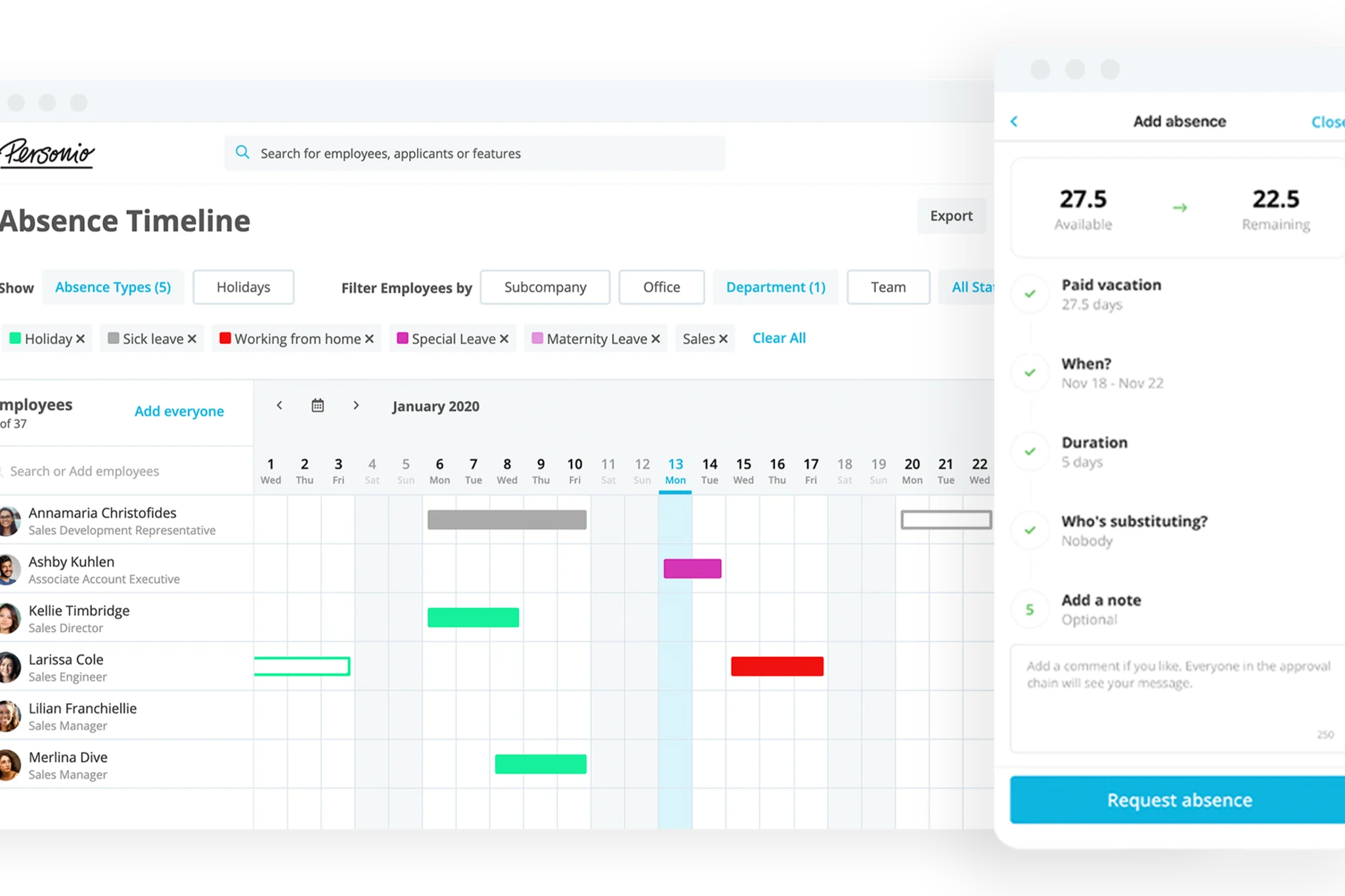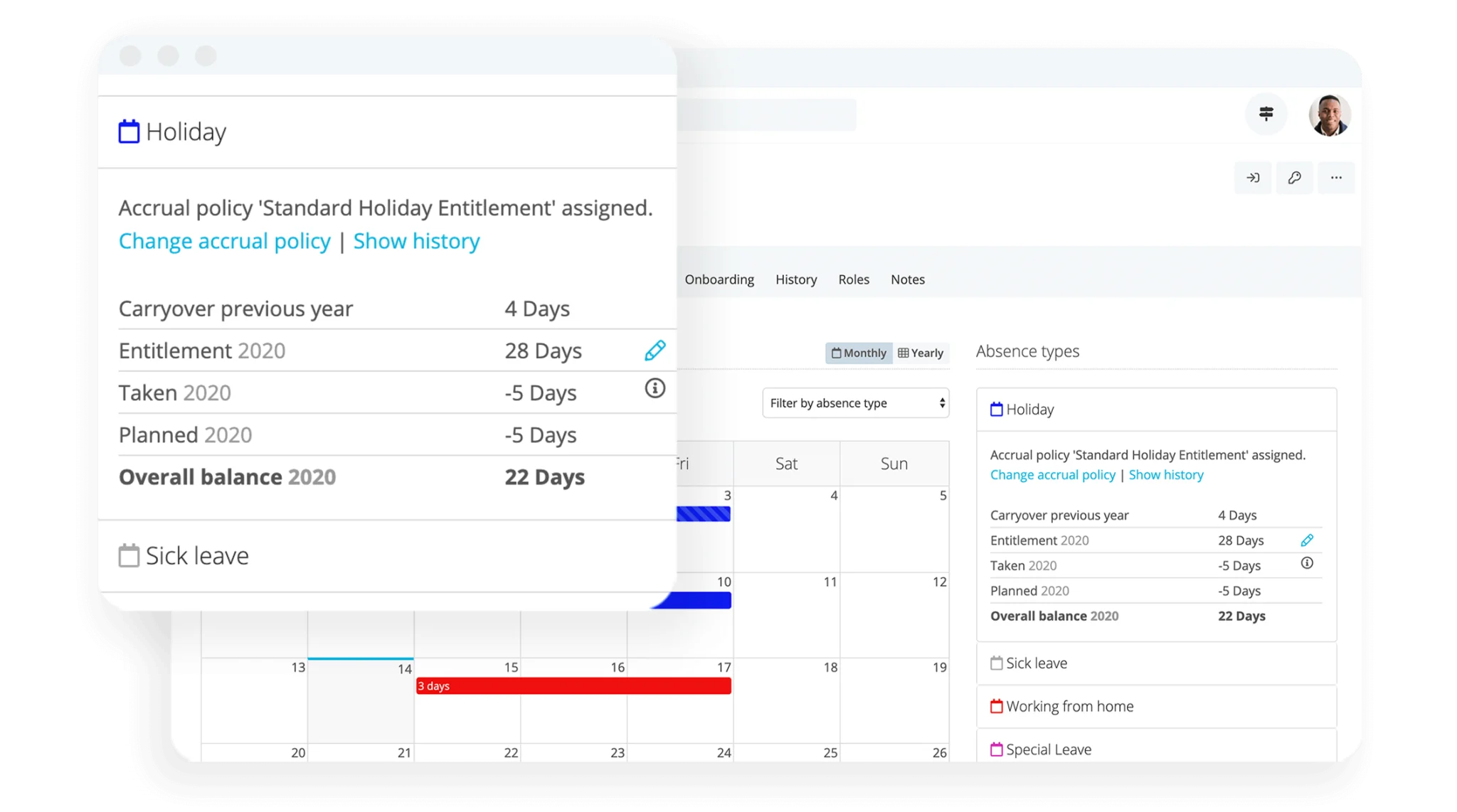Emergency Leave: What You Need To Know

What would happen if one of your employees needed to take emergency leave? Recent research by the CIPD revealed that more than a quarter (27%) of respondents say their pay is not enough to cope with a £300 emergency.
And, less than a quarter of the employees surveyed say their company offers paid time off for emergency childcare (23%). So, what is your team’s official stance on emergency leave? In this article, we help work through some of the key considerations you need to make.
Skip right to the chase and download our staff holiday planner template today.What Is Emergency Leave?
Emergency leave is time allowed off from work for genuine, unforeseen emergencies. UK law does allow for people to take time off to deal with emergencies – but that doesn’t mean people will automatically be paid during that time. The law also doesn’t include specific rules or guidance about general emergencies.
There is, however, a specific category of leave dealing with emergency care situations. Commonly known as emergency leave, it is also referred to as ‘time off for family and dependants’ by gov.uk (the authority on this matter) or compassionate leave.
What Counts as an Emergency?
There’s a difference between what UK law considers emergency leave, compassionate leave, family emergency leave and a genuine emergency. Employees could be entitled to take time off in these circumstances:
If a dependant falls ill.
If a dependant has been injured or assaulted.
If a dependant is having a baby.
If there are issues around a dependant’s care arrangements.
If unexpected incidents involving children happen at school.
If a dependant dies.
What Does Not Count as an Emergency?
If employees knew they’d need to take leave in advance (for example, if they had a doctor’s appointment or surgery upcoming) this would not constitute emergency leave.
Additionally, because the term emergency only applies to family emergencies, the following categories are not considered emergency leave:
Car accidents
Burglary or theft
Life-threatening circumstances
Emergency surgery for yourself
Dealing with an assault or non-work-related injury
Dealing with a home-related emergency (like a burst geyser, fire or flood).
However, compassionate employers know that people have to take time off work, particularly in emergencies. So, make sure your employee handbook covers what the company and the employee should do when this happens.
How Does Emergency Leave Work?
When an employee needs to take emergency leave, a certain number of steps need to take place. Here’s what you should expect:
The employee should contact their manager.
They will explain the situation.
Try to say how much time they’ll need.
If their employment contract requires it, they may need to fill in a form or document their emergency leave absence in some way.
Emergency Leave Duration and Payment
An employee can take as much time as they need to be away from work in an emergency situation, but how this is categorised and whether or not they are paid is up to your company to decide.
It’s important to deal with an emergency in line with any corporate policies on this subject, as well as with compassion.
Employees who are not supported during this time, or who end up being mistreated or dismissed, could consider making a constructive dismissal claim against the company in extreme circumstances. No one wants that.
How Much Time Can An Employee Take Off?
Officially, there is no specific limit on how much time employees can take off to deal with an emergency relating to their dependents. But that doesn’t mean employers should just accept an employee disappearing. Employers can, and should:
Talk to employees if their work is suffering because of time taken for emergency leave
Refer employees to their employee handbook or employment contract if the amount of time taken exceeds either a reasonable amount or the allowable amount stipulated in the contract
Getting Paid While on Emergency Leave
The UK government does have various types of statutory leave and the rules are generally clear about when people should be paid for annual leave, compassionate leave, garden leave, maternity or parental leave, stress leave and sabbaticals and when it’s up to the company to make the decision (as long as it’s covered by the employment contract or other guidelines like the employee handbook).
But when it comes to emergency leave, it’s up to your company to decide whether employees are required to be paid for time off and, if so, for how long (this depends on the type of leave they’re taking as well as your company policy and attitude to time off).
How Should Employees Request Emergency Leave?
When asking for leave in an emergency, employees should always tell their employer as soon as possible. They should say how much time they’ll need, so it can be agreed upon or approved.
One of the best ways to inform a line manager is to call them! It helps to hear how an employee is coping and managers can often offer help and support – even if it’s just reassurance that any necessary tasks or deadlines can be handled in their absence.
Often employees can’t be specific about how long an emergency situation will last, but it’s really important to keep in contact. That doesn’t just reassure the employer, it can also help them make sure they’re doing due diligence when looking after an employee’s health and safety if any element of the crisis is work-related.
Here’s an example email that could be sent to a manager in an emergency:
Hi [insert name]
I am so sorry but I won’t be able to come to work [insert duration] as [insert reason]. It’s an emergency, so I don’t know exactly when I’ll be back at work but I’ll keep you informed as to what’s going on.
(If relevant / appropriate). Please can you help me by [dealing with X, handling Y or ensuring Z is done] while I’m away?
Regards, [Insert name]
If sending a text requesting emergency leave, here are a few messages employees might use:
“Hi. I’m so sorry I’m not at work, but I’m dealing with an emergency. I’ll call as soon as I can to let you know what’s happening.”
“I’m dealing with a personal emergency right now. I am okay, but I won’t be at work today. As soon as things settle, I’ll call you.”
“I’m so sorry but I won’t be able to meet the deadline on Friday because of a family emergency. Could we possibly move it to next week?”
“My apologies for not [insert details]. Here’s the situation…”
Frequently Asked Questions About Emergency Leave
Can I Get Emergency Leave From Work?
The answer to this question is always yes. Employees have the right to take leave during an emergency.
Why Do People Take Emergency Leave?
People take emergency leave in a wide variety of circumstances. But it’s only an emergency if it was not pre-planned. So, while employees will be away from work for doctor’s appointments or surgery, these are not emergency circumstances.
How Do I Say I Need To Take Emergency Leave?
When taking emergency leave, employees must give their company as much information as necessary, as quickly as possible. It never hurts for employees to reassure their manager or contact that they’re okay (if they are).
If they need help, it’s a good idea to explain what help they need. If they’re communicating with multiple people it helps to send one message or text to everyone explaining who their single point of contact will be during the emergency, so there’s less pressure to share information with everyone.
What Counts as a Family Emergency?
A family emergency is one where something bad and unpredictable happens to a dependant that requires your employee to help. Their dependant could be their parent, child, partner, wife, husband, or anyone living in their household as a member of the family.
Do You Have A Leave Management System?
The world of work is only becoming more complex. The last thing you should be worrying about is calculating holiday entitlements, tracking them or ensuring you are legally compliant. Allow us to help.
Personio is an all-in-one HR software that helps upgrade your people operations for now and the future. That includes a leave management software that can manage holiday requests, track every kind of leave (from emergencies to sicknesses and bank holidays) alongside all of your other core HR processes.
8,000+ customers in the UK and Europe trust us to help. Get in touch with one of our helpful HR experts today, or start your own free trial to give Personio a go right away.


